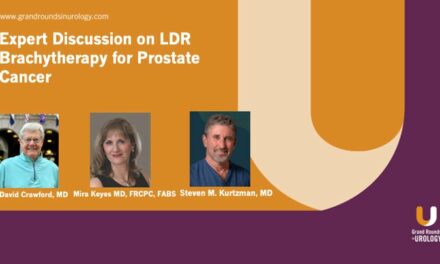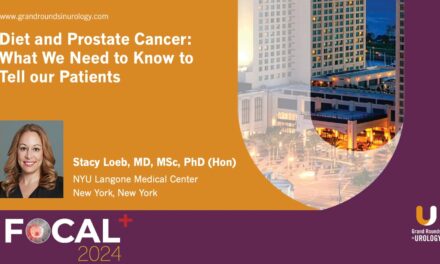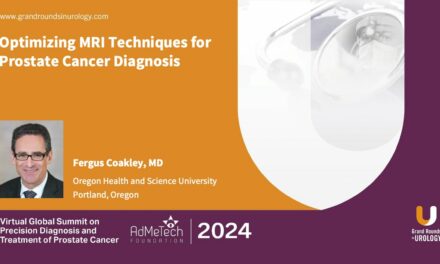Peter R. Carroll, MD, MPH, presented “New Advances in Next-Generation Imaging: PyL PSMA PET/CT” for the Grand Rounds in Urology audience in January 2021.
How to cite: Carroll, Peter R. “Changes in Prostate Cancer Presentation Following the 2012 USPSTF Screening Statement” January 2021. Accessed Jan 2026. https://grandroundsinurology.com/new-advances-in-next-generation-imaging-pyl-psma-pet-ct/
New Advances in Next-Generation Imaging – PyL PSMA PET/CT: Summary#
Grand Rounds in Urology Editor-in-Chief E. David Crawford, MD, Professor of Urology at UC San Diego, interviews Peter R. Carroll, MD, MPH, Professor of Urology and Prostate Cancer at UC San Francisco, about PSMA PET/CT imaging for prostate cancer, focusing particularly on a promising new PSMA agent called PyL. The only PSMA agent currently approved for use in the United States is 68Gallium, which has a very short half-life and must be manufactured on-site. In part for this reason, 68Gallium PSMA can only be used at UCSF and UCLA. Dr. Carroll explains that PyL PSMA PET behaves similarly to 68Gallium PSMA PET, with greater sensitivity and capacity to trigger a change in treatment plans than standard imaging, but that the PyL agent is more stable, which should make it an easier product to distribute. Drs. Crawford and Carroll then consider the benefits of PSMA testing in general, noting how it could soon replace technetium bone scans as well as choline and axumin PET scans. Dr. Carroll also emphasizes PSMA PET’s role in defining the oligometastatic state. They conclude by discussing PSMA PET and theranostics.
For more on imaging for prostate cancer, check out our Next Generation Learning Center on Imaging!
ABOUT THE AUTHOR
Dr. Peter Carroll holds the Ken and Donna Derr-Chevron Professorship in Prostate Cancer and the Taube Family Distinguished Professorship in Urology at the University of California, San Francisco (UCSF). He is also the Associate Director of Strategic Planning and Clinical Services and Program Leader of the Prostate Cancer Program at the Helen Diller Family Comprehensive Cancer Center at UCSF.
Dr. Carroll graduated with honors from Georgetown University School of Medicine. He then went on to complete general surgery training and a urology residency at UCSF, as well as a Fellowship in Urologic Oncology at Memorial Sloan Kettering Cancer Center in New York City. He has taught at the UCSF Department of Urology since 1986, and he became the department chair in 1996. Under his leadership, the department has been consistently ranked one of the top urology departments in the country by U.S. News and World Report. The department has grown, serving an increasingly larger patient population, expanding its research programs, and attracting future leaders in the field for training. Under Dr. Carroll’s leadership, the department managed an average of over $10 million in research grants that put UCSF in first place for urology funding for five consecutive years. Dr. Carroll also established the UCSF Department of Urology’s Tissue Core, a biobank of blood, urine, and residual prostate, bladder, and renal tissues for more than 6,000 consenting patients. In addition to his many accomplishments at UCSF, Dr. Carroll has authored or co-authored over 650 publications, is an active member of numerous professional medical societies, and is currently principal or co-investigator on numerous scientific studies. He is also Past-President of the American Board of Urology (2006-2008). His drive to perfect nerve-sparing prostatectomy has led to many technical innovations, and his pioneering efforts in standardizing an active surveillance regimen has led to many patients postponing radical treatment while maintaining a low risk of cancer progression.




